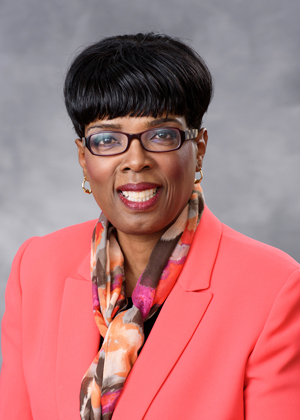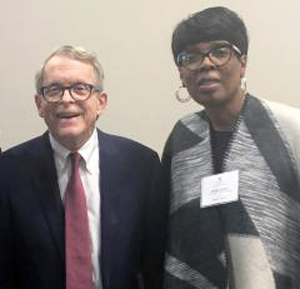
By Rev. Donald L. Perryman, Ph.D.
The Truth Toledo
How leaders navigate a crisis has an enormous influence over the impact that crisis will have on their organization, not to mention the personal impact it will have on the people and leadership of that organization, in its aftermath. – Erica James
After 39 years of protecting children from abuse and neglect, Robin Reese will retire from Lucas County Children Services. She was named executive director in 2016 after beginning as a caseworker in 1984 and later rising to manager of the Placement Department.
Reese’s patient, careful and quiet leadership style will likely obscure her impactful achievements. Yet, she has displayed, possibly, the gold standard for leadership in Toledo rather than other, more high-profile or charismatic colleagues.
Reese accepted the position, as is often the case for Black leaders, when LCCS (or CSB) faced an organizational crisis. The community was facing an opiate epidemic, and the previous long-time executive director had recently left the organization. In addition, a recent levy had failed, community support had withered and workforce morale was extremely low. Nevertheless, Reese faced the challenge, stepped into the leadership gap, and contained and repaired the damage while preparing LCCS for impact.
The agency currently receives over 4,000 annual calls for service. Through its intake and assessment process, it has 867 children in foster care and many others receiving services for domestic violence, homelessness, and other issues.
Here are a few observations of Reese’s “gold standard” leadership approach:

Be Intentional about the Vision
The topic of children who have experienced abuse, neglect and trauma is fraught with emotion and conflict. It can lead to dysfunction within and outside the organization. Therefore, a good leader provides purpose and direction by shifting the focus from WHAT we do to WHY we do it. “It’s about the Children!” So, the protection of children is now genuinely “the why” of the agency’s mission.
Reese’s strength is her style – not loud or flashy, but decisive and firm, without which the vision won’t be operative or have the empowering focus it needs. “She doesn’t get knocked off her square very easily. She’s going to make a decision and then see it through,” her peers say.
Reese effectively used this quiet style to implement a laser-like focus on making the protection of children from abuse, neglect, and the ravages of the opiate epidemic the organization’s all-encompassing goal.
The Community Matters
Good leaders also define reality and realize the importance of the Black community. As CSB addresses the delicate care and placement needs of abused and neglected children, a disproportionate amount (50 percent) of the children served are racial and ethnic minorities.
One-third of the organization’s 386 employees are African American. The agency also contracts with local media, including Urban Radio, WJUC, Toledo Journal, Sojourner’s Truth and LaPrensa. In addition, LCCS includes minority suppliers in its bidding pool for IT and other products and services.
Recognizing this, Reese shifted the agency’s position from reactive to proactive by taking CSB outside its walls and back out into the community. As a result, you now see the agency providing onsite prevention and intervention services in neighborhoods like the Greenbelt weekly.
Addressing Systems: Diversity, Equity, Inclusion, and Anti-Racism Collaborations
Good leadership also recognizes collaborative partnerships’ importance in addressing organizational and community crises. Robin served as a participant and/or convener in creating coalitions advocating for diversity, equity, inclusion, and anti-racism.
Perhaps the most persistent voice among several others that stepped up and spoke out, Reese made tangible strides to repair the broken “system.” She worked tirelessly with the Toledo Racial Equity & Inclusion Council (TREIC), the 100 Women, The Movement, and other racial equity projects. All of these efforts were further evidence of the need for leaders to address the complex but dynamic systemic issues in the broader environment that also impact individuals and organizations.

Expand Your Horizons
Good leaders look beyond established horizons and reach for new frontiers. Mrs. Reese has developed a close working relationship with Ohio Governor Mike DeWine, a Republican, and served on his Transformation Advisory Council. She also sits on the Public Children Services Association of Ohio’s Board of Trustees, is a member of the OhioRISE advisory board, and is a frequent advisor to the Annie E. Casey Foundation on matters of child welfare policy.
Neither Reese nor LCCS is perfect. Yet, you can measure the quality of leadership by observing how leaders navigate in a crisis.
At a difficult time and faced with an organizational crisis, Reese was intentional about the vision, realized the importance of Black community matters, and participated in collaborative partnerships to address systemic issues. Finally, she looked beyond established horizons to reach for new frontiers.
In doing so, she went from replacing “a guy that had been there a long time” to someone that will be viewed as a “historical leader of LCCS for all time.”
Robin Reese will be missed.
Contact Rev. Donald Perryman, PhD, at drdlperryman@centerofhopebaptist.org
